 | This week's European news |
|
|
|
Letter n°1094 of Tuesday 14th January 2025 |
|
|
| The entire Foundation team wishes you a very Happy New Year 2025 |
Gilles Lepesant - 14 Jan 2025 | | |
|
|
| |
| Agenda | Other issues | Contact |
| ■ Front page! :
|
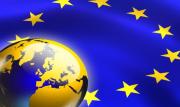 | | A European Agenda for 2025 | | Europe must mobilise all its forces and get back into the economic, technological and diplomatic race, because the year 2025 is of crucial importance for the European Union, which faces a host of strategic challenges. The priorities identified by Jean-Dominique Giuliani include reviving economic growth, which is essential if we are to catch up with the major economies. Stimulating innovation is essential, while limiting the proliferation of regulations that are often perceived as too restrictive. Finally, a common foreign and defence policy that respects national sovereignty is urgently needed to strengthen Europe's place on the international stage. Read more |
|
|
| ■ Elections :
|
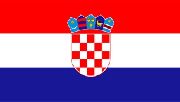 | | Zoran Milanovic re-elected President of the Republic of Croatia | | Outgoing head of state Zoran Milanovic was widely re-elected with 74.68% of the vote, the highest result for a head of state since the country regained its independence in 1991. He was well ahead of independent candidate Dragan Primorac, supported by Prime Minister Andrej Plenkovic's party, the Democratic Union (HDZ), who won 25.32% of the vote. 44.18% of voters turned out at the polls, 1.83% fewer than in the first round. Read more |
|
|
| ■ Foundation :
|
 | | Follow the development of the Recovery and Resilience Facility on the Foundation's website | | On 23 December, the European Commission granted five payments to the Czech Republic, Germany, Italy, Portugal and Romania. These payments come under the Recovery and Resilience Facility, adopted in response to the covid-19 pandemic. €37 million has been allocated to Romania and €13.5 billion to Germany. For more information on the national plans of each Member State, visit the page of the Robert Schuman Foundation website dedicated to this subject. Read more |
|
|
| |
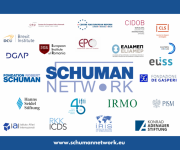 | | The Schuman Network, forum for ideas and debates on Europe | | An initiative of the Foundation, the Schuman Network brings together researchers and experts specialising in European issues in order to encourage the exchange of ideas and enrich discussions on the future of Europe. Comprising 21 members from 13 European countries, the Schuman Network is a platform dedicated to the pooling of analyses on a variety of current European issues. Since its launch at the end of 2023, the network has enabled 149 studies to be circulated. Read more |
|
|
| ■ Commission :
|
 | | Entry into force of European legislation on the universal charger | | On 28 December 2024, European legislation on a universal charger for electronic devices came into force. As a result, most electronic devices on sale will have to include a USB Type-C port. The aim of this legislation is to make it easier for people to use their devices, and to limit the economic and environmental cost of these products. The Commission estimates that up to 11,000 tonnes of electronic waste will be avoided every year, and that Europeans will save almost €250 million. This measure will apply to laptops from 28 April 2026. Read more |
|
|
| |
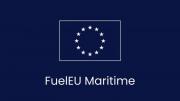 | | Entry into force of measures to reduce ships' carbon emissions | | The maritime FuelEU regulation, adopted in 2023, came into force on 1 January. It sets a number of limits for the average annual intensity of greenhouse gas emissions (CO2, methane, nitrous oxide) for ships of more than 5,000 gross tonnes calling at European ports, regardless of their flag. This type of vessel represents 55% of those in circulation and 90% of carbon dioxide emissions from the maritime sector. Read more |
|
|
| |
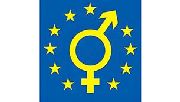 | | Balance between men and women on company boards | | On 3 January, the directive on gender balance on company boards came into force. The aim is to achieve a more balanced representation on the boards of listed companies in all EU Member States, with a target of 40% of the under-represented sex among non-executive directors and 33% for all directors. Companies must meet these targets by 30 June 2026. Women currently account for an average of 34% of company board members in the European Union. Read more |
|
|
| |
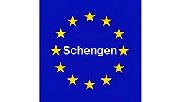 | | Romania and Bulgaria join Schengen | | Since 1ᵉʳ January, Romania and Bulgaria have been part of the Schengen area. Accession was phased in for air and sea transport in April 2024 and for road transport following the withdrawal of the Austrian veto on 9 December 2024. The Schengen area now comprises 29 members. Read more |
|
|
| ■ Diplomacy :
|
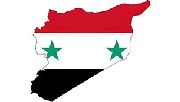 | | French and German Foreign Affairs Ministers visit Syria | | On 3 January, the German and French foreign ministers, Annalena Baerbock and Jean-Noël Barrot, met the head of the Syrian authorities, Ahmad Al-Chaara, to confirm their commitment to a peaceful and rigorous transition, and to safeguarding collective interests in the fight against terrorism. In addition, French and German technical expertise will be provided to the Syrian authorities to crack down on the crimes committed by Bashar al-Assad's regime. The European Union has also launched a humanitarian airlift operation combined with an increase in funding for Syria. Read more |
|
|
| ■ European Agencies :
|
 | | Airbus delivered 766 machines in 2024, easily ahead of Boeing | | On 9 January, Airbus, Europe's leading aerospace and defence company, announced that it had received 878 orders to manufacture airliners for 2024, including 82 A330 prototypes and 142 A350s. This development, which marks a recovery in activity following the collapse caused by the Covid-19 pandemic, means that 766 aircraft were delivered in 2024, four fewer than the company's last forecast. Despite this, the European aircraft manufacturer is now more than ever the world's leading aircraft manufacturer, widening the gap with Boeing. Read more |
|
|
| |
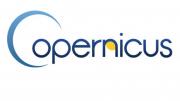 | | 2024, the hottest year on record | | The Copernicus Institute's 2024 report, published on 10 January, confirms that 2024 was the warmest year on record and the first to exceed the threshold of 1.5°C above pre-industrial levels. The report states that all regions of the world experienced their hottest year in 2024, and that Europe has warmed twice as fast as the global average since the 1980s, making it the fastest-warming continent. The Copernicus Institute is part of the European Union's space programme and is funded by the EU. Read more - Other link |
|
|
| ■ Austria :
|
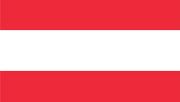 | | A new chancellor pending a coalition government with the far right | | On 6 January, Austrian President Alexander Van der Bellen appointed Herbert Kickl, leader of the far-right FPÖ party, to form a coalition government. This unprecedented situation in post-war history follows the failure of talks between the ÖVP, the SPÖ and the NEOS liberals on 4 January, formalising the resignation of outgoing Chancellor Karl Nehammer and the failure of the traditional parties to achieve a government majority. The Minister for Foreign Affairs, Alexander Schallenberg, was sworn in as Chancellor on 10 January until the new government collation. Read more - Other link |
|
|
| ■ Spain :
|
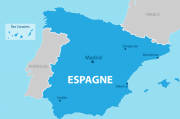 | | 50 years since the end of the dictatorship in Spain | | The year 2025 marks the 50th anniversary of the demise of Franco's regime, which led to the start of the country's democratisation process. This "Spain in Freedom" commemoration was inaugurated by the head of the Spanish government, Pedro Sánchez, on 8 January, in a speech in Madrid. He outlined the range of activities taking place, including hundreds of conferences, exhibitions and audiovisual screenings, to pay tribute to the progress and advances made by the country as a whole. Read more |
|
|
| ■ Finland :
|
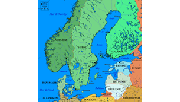 | | Baltic Sea: submarine cables sabotaged - support given by NATO | | Two telecommunications cables between Finland and Estonia, damaged on 25 December in the Baltic Sea after a suspected act of sabotage, have been repaired, Finnish operator Elisa announced on 7 January. On 26 December, the Finnish police opened an investigation into 'aggravated sabotage' following damage to four telecommunications cables and an electricity cable (EstLink 2), suspecting that an oil tanker, the Eagle S, believed to be part of a Russian 'phantom fleet', was behind the damage. In response, NATO decided on 30 December to step up navigation safety in the Baltic Sea area to secure critical underwater infrastructure. The countries bordering the Baltic Sea will meet on 14 January in Helsinki to discuss security in the region, with NATO Secretary General Mark Rutte expected to attend. Read more - Other link |
|
|
| ■ France :
|
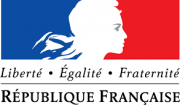 | | New government | | Appointed by decree of French President Emmanuel Macron on 23 December, the new government, led by François Bayrou, met for its first Council of Ministers on 3 January. Comprising 36 ministers, including 18 women, the government launched meetings with the various parties on 6 January to discuss the draft budget for 2025. On 14 January, the Prime Minister will present his government's broad policy guidelines in his general policy speech. Read more - Other link |
|
|
| |
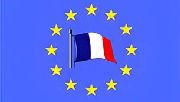 | | Conference of Ambassadors | | The 30th Ambassadors' Conference was held in Paris on 6 and 7 January. Major international issues such as global security, feminist diplomacy, the fight against manipulation and European defence were at the heart of the discussions. In addition to the speech by the President of the French Republic, Emmanuel Macron, this year's event was marked by the presence of the Polish Minister of Foreign Affairs, Radosław Sikorski, to discuss the priorities of the Polish Presidency of the Council of the European Union. Read more - Other link |
|
|
| ■ Georgia :
|
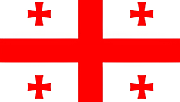 | | Presidential inauguration in Georgia marked by police repression | | The inauguration of Georgian 'President' Mikheil Kavelashvili on 29 December led to mass demonstrations and police violence across Tbilisi. Large-scale protests erupted across the country on 28 November, when the governing 'Georgian Dream' party pushed back the deadline for the country's accession talks with the European Union to 2028. The outgoing President, Salome Zurabishvili, joined the demonstrators, denouncing an 'illegitimate' election orchestrated by Mikheil Kavelashvili and the Georgian Dream, with the help of Russia. The protests are continuing across the country and are characterised by an upsurge in police violence, which seems to be targeting journalists and other media players. Read more - Other link |
|
|
| ■ Moldova :
|
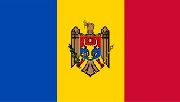 | | Investiture of Maia Sandu for her second mandate | | Moldovan President Maia Sandu was sworn in for a new term on 24 December 2024, and hailed the pro-European choice made by the electorate "despite the pressure", after an election overshadowed by accusations of interference by Moscow. Maia Sandu won the second round of the presidential election in early November with 55.33% of the vote. Since 2020, she has resolutely turned her country of 2.6 million inhabitants towards the European Union, which opened accession negotiations with Moldova in June 2024. Read more |
|
|
| ■ UK :
|
 | | Meeting between Emmanuel Macron and Keir Starmer | | French President Emmanuel Macron and British Prime Minister Keir Starmer met on 9 January to discuss international issues, in particular the coordination of the two countries' responses to the situation in Ukraine and the Middle East. The two leaders confirmed their commitment to continue delivering equipment to Ukraine. They discussed the deepening of relations between their two countries, particularly in the fields of defence, migration and energy transition. Read more |
|
|
| ■ Ukraine :
|
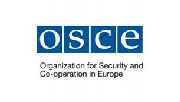 | | Elina Valtonen, President of the OSCE, visits Kyiv | | The President of the OSCE and Minister for Foreign Affairs of Finland, Elina Valtonen, visited Kyiv on 8 January, as Finland began its one-year chairmanship of the organisation. During the meetings, she reiterated that support for Ukraine was a priority for the Finnish OSCE Chairmanship. Particular attention was paid in the discussions to strengthening sanctions against Russia's shadow fleet. Read more |
|
|
| |
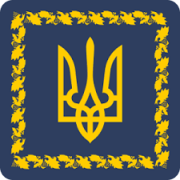 | | Volodymyr Zelenskyy in Italy | | President Volodymyr Zelenskyy travelled to Rome to meet Italian President Sergio Mattarella and Council President Giorgia Meloni on 9 and 10 January. The Ukrainian President expressed his gratitude for Italy's unwavering support for Ukraine's sovereignty and territorial integrity, and for the constant attention paid to Ukraine during Italy's presidency of the G7. One of the main topics of their discussions was Ukraine's defence needs, particularly in terms of strengthening its air defence. Read more - Other link |
|
|
| |
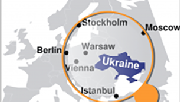 | | Plan to support Kyiv until 2027 | | At the meeting of the Contact Group for the Defence of Ukraine held on 9 January in Ramstein, eight individual roadmaps were adopted to support the Ukrainian armed forces in their fight against the Russian invasion until 2027. These priorities include strengthening Ukraine's defences, organising military and logistical support, supplies and military intelligence. Read more - Other link |
|
|
| ■ Vatican :
|
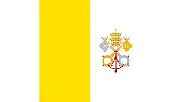 | | Simona Brambilla, first women to head a ministry at the Vatican | | On 6 January, Sister Simona Brambilla was appointed Prefect of the Dicastery for Institutes of Consecrated Life and Societies of Apostolic Life, the 'ministry' of the Curia (Vatican government) responsible for religious congregations and orders. A former missionary in Mozambique, she is the first woman to hold this post, marking the increase in the number of women holding positions in the Holy See and the Vatican's state administration. Read more |
|
|
| ■ Eurobarometer :
|
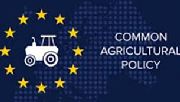 | | Support for the Common Agricultural Policy | | On 9 January, the European Commission published a Eurobarometer survey revealing strong support for the Common Agricultural Policy. Nearly 78% of those questioned said they were aware of the CAP, the highest level of awareness since 2007, and 70% felt that the European Union was fulfilling its role through the CAP. For European citizens, the CAP guarantees a stable food supply at all times, contributes to the sustainable management of natural resources and strengthens the role of farmers in the food chain. Read more - Other link |
|
|
| ■ Studies/Reports :
|
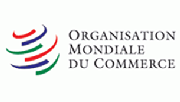 | | The European Union partially wins its case against Indonesia at the WTO | | On 10 January, the World Trade Organisation published a report on a case brought in 2019 by Indonesia against the European Union over certain measures imposed by the latter on palm oil and biofuels derived from palm oil. According to Indonesia, these measures contravened several provisions governing world trade. In this report, the WTO partially agrees with the European Union that Indonesia did not establish with sufficient rigour the measures that contravened international trade rules. However, it highlights certain "shortcomings in the design and implementation" of the measures by the European Union. Read more - Other link |
|
|
| |
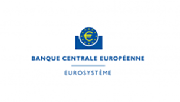 | | ECB publication on the financing of the green transition | | On 8 January, the European Central Bank published a study on the green investments needed to complete the ecological transition. It sets out the needs and strategic options for such investment. The ECB advocates massive investment from the private sector, supported by the financial markets. However, it reiterates the essential nature of support from public funds. In this context, the ECB is calling for structural reforms to encourage businesses, households and investors to commit to green investment. Read more |
|
|
| |
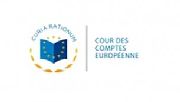 | | Report on digital payments | | In a report published on 9 January, the European Court of Auditors points out that the approach to digital payments has helped to make them faster, safer and cheaper for users. It nonetheless highlights two drawbacks that the Commission must take into account: the absence of any obligation on the part of the Commission to regularly review measures affecting prices and the obligation to share account data free of charge, which do not encourage the provision of high-quality open banking services. Digital payments will account for almost €1,000 billion by 2023, double the figure for 2017. Read more - Other link |
|
|
| |
 | | UN Economic Outlook 2025 | | In a report published on 9 January, the UN estimates that global growth should remain at 2.8% in 2025. This illustrates the resilience of the global economy, which is in the throes of many upheavals, but remains below the pre-pandemic average of 3.2%. The UN is nevertheless warning of a number of risks, ranging from geopolitical conflicts to growing trade tensions. European growth is expected to rise from 0.9% in 2024 to 1.3% in 2025. Finally, world trade should rise to 3.2% in 2025 from 3.4% in 2024, and inflation to 3.4% in 2025 from 4% in 2024. Read more |
|
|
| ■ Culture :
|
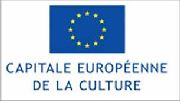 | | European Capitals of Culture 2025 | | In addition to Chemnitz, the neighbouring border towns of Nova Gorica (Slovenia) and Gorizia (Italy) have been named European Capitals of Culture for 2025. The German city, located in Saxony, will open the festivities on 18 January, with a programme illustrating the historical and current richness of a community and its region, characterised by change, resilience and reinvention. Read more - Other link |
|
|
| |
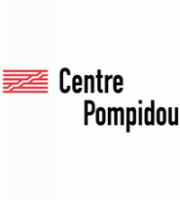 | | Suzanne Valadon in Paris | | Until 26 May, the Centre Pompidou is presenting a monograph devoted to Suzanne Valadon. The exhibition highlights almost 200 paintings and drawings by the French artist, illustrating her pioneering role in the birth of artistic modernity. This presentation, enhanced by new loans, showcases Suzanne Valadon's work, characterised by the need to paint reality, on the fringes of the dominant trends of her time, such as cubism and abstract art. Read more |
|
|
| |
 | | Turner in Edinburgh and Dublin | | In January, the National Gallery of Ireland and the National Galleries of Scotland are celebrating the 250ᵉ birthday of the painter J.M.W. Turner with an exceptional collaboration between the two institutions. In Dublin, the exhibition will be presenting, until 31 January, some forty watercolours from the Vaughan inheritance from Scotland. At the same time, in Edinburgh, more than 30 watercolours from the Irish collection will be on show, providing a comprehensive overview of Turner's work. Read more - Other link |
|
|
| |
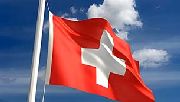 | | Home is a foreign place, Basel | | What does the term "homeland" mean to you? The Swiss artist Sarah Knecht, although deeply rooted in Basel, does not intend to restrict herself to the classic schemes of local belonging. For her, the notion of homeland is deeply personal, fluid, temporal and intimately changeable, as the title of her exhibition "Home is a foreign place", on view until 27 April at the Kulturstiftung H. Geiger, suggests. Read more |
|
|
| |
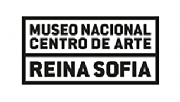 | | Miguel Ángel Tornero in Madrid | | During its first year of restoration, the Palacio de Cristal at the Museo Reina Sofía in Madrid is presenting an original exhibition of the paintings that will cover the building. The first artist to take part in this series is Miguel Ángel Tornero, who will be on show until 16 January 2026. Read more |
|
|
| |
 | | Dunkirk Carnival | | The Dunkirk carnival will run until 27 April. The three months of festivities are punctuated by a host of events, including Saturday night balls, Sunday bands and Uncle CÔ's night. Mardi Gras week marks the high point of the festivities. Read more |
|
|
| |
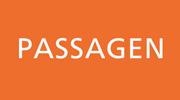 | | Passagen Design in Cologne | | The Passagen interior design festival is being held in Cologne until 16 January. It showcases the latest trends in design, particularly furniture. Read more |
|
|
| |
 | 20 January |
| | Eurogroup Meeting (Brussels) | | |
|
 | 20-23 January |
| | Plenary Session of the European Parliament (Brussels) |
|
|
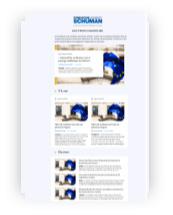 | The Letter n°1094 | | PDF | | in English -- Edition of Tuesday 14th January 2025 |
| |
|
| The Letter is also available in: |
|      |
 |
| The Letter's Editorial Team : Helen Levy, Juliette Bachschmidt ; Catherine d'Angelo, Maxime Painot, Lilian Lallemand, Fabio Tomasic, Marie Cohignac, Clément Stratmann N° ISSN: 2729-6482 A question, a suggestion ? Contact us! info@robert-schuman.eu | Editors-in-chief : Elise Bernard Publishing Director : Pascale Joannin |
|
| Click here if this email is not displayed correctly. |
 |
You no longer wish to receive our letters. Click here to cancel subscription
|

